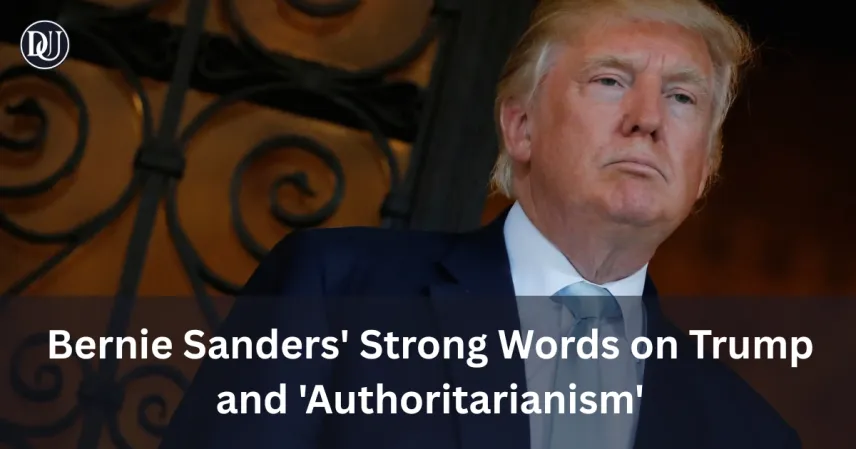I was just catching up on some political news, and something pretty striking jumped out at me. You know how sometimes politicians use really strong language, and you have to wonder if it's just rhetoric or if there's a deeper concern? Well, Bernie Sanders recently made quite a statement, accusing Donald Trump of moving the U.S. "into authoritarianism" And the context? It’s tied to a moment when troops were sent to Los Angeles. Seriously, that’s a heavy accusation, isn’t it? It makes you really think about the power of the government and what it means for our civil liberties.
Here's What's Really Going On Behind the Headlines
Let's be honest, the idea of the military being deployed within our own cities can be unsettling for many. Sanders' comments aren't new in the political landscape, but they echo concerns that have been raised by various figures about the use of federal power. When he talks about \"authoritarianism,\" he's tapping into fears about a government potentially overstepping its bounds and using force in ways that might suppress dissent or control public spaces. It's a fundamental debate about the balance of power in a democracy.
- The Allegation: Bernie Sanders explicitly stated that Trump's actions were pushing the U.S. towards authoritarian rule. This is a serious charge, implying a move away from democratic principles.
- The Context: This accusation specifically came after a period when federal troops or federal law enforcement were sent into various cities, including Los Angeles, often in response to protests or civil unrest. This act raised eyebrows and sparked a lot of debate.
- The Core Concern: At its heart, Sanders' statement is about whether the use of military or militarized forces domestically threatens the rights of citizens, like freedom of assembly and speech, and if it signifies an undue concentration of power in the executive branch.
Now, I know what you're thinking: isn't law and order necessary during times of unrest? Absolutely, most would agree. But here's the thing: there's a fine line between maintaining order and potentially infringing on civil liberties. Critics like Sanders argue that deploying troops in this manner can escalate tensions, intimidate citizens, and be seen as a show of force that undermines the democratic process itself. This got me thinking, it's not just about what happened, but about the precedent it sets. Trust me on this, these are discussions that affect all of us, regardless of our political leanings.
What This Actually Means for Our Democracy
This kind of political rhetoric, particularly from a figure like Bernie Sanders, isn't just political grandstanding; it has real implications for how we perceive our government and the health of our democracy. What does this mean for us? It means we need to be vigilant about the checks and balances that are supposed to protect our freedoms. When a prominent politician raises concerns about authoritarianism, it prompts a crucial conversation about the limits of executive power and the role of the military in domestic affairs.
It also highlights the ongoing tension between maintaining order and preserving civil liberties. We've all seen protests, sometimes escalating, but the response to them is critical. The debate around sending troops to cities forces us to consider the constitutional boundaries and the potential for federal overreach. It's about ensuring that our democratic institutions remain strong and that the government serves the people, not the other way around. It’s a foundational principle, you know?
Bottom Line: A Vital Conversation About Power and Liberty
Bernie Sanders' accusation that Donald Trump is moving the U.S. towards authoritarianism, especially in the context of sending troops to LA, sparks a vital national conversation. It’s a powerful reminder of the delicate balance between government authority and the protection of civil liberties in a democratic society. This debate isn't going away anytime soon, and it's one we all need to be engaged in. What are your thoughts on the use of federal troops in domestic situations, and what makes a democracy truly strong?










